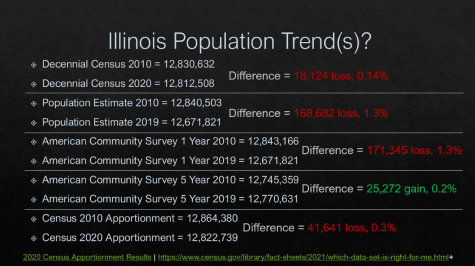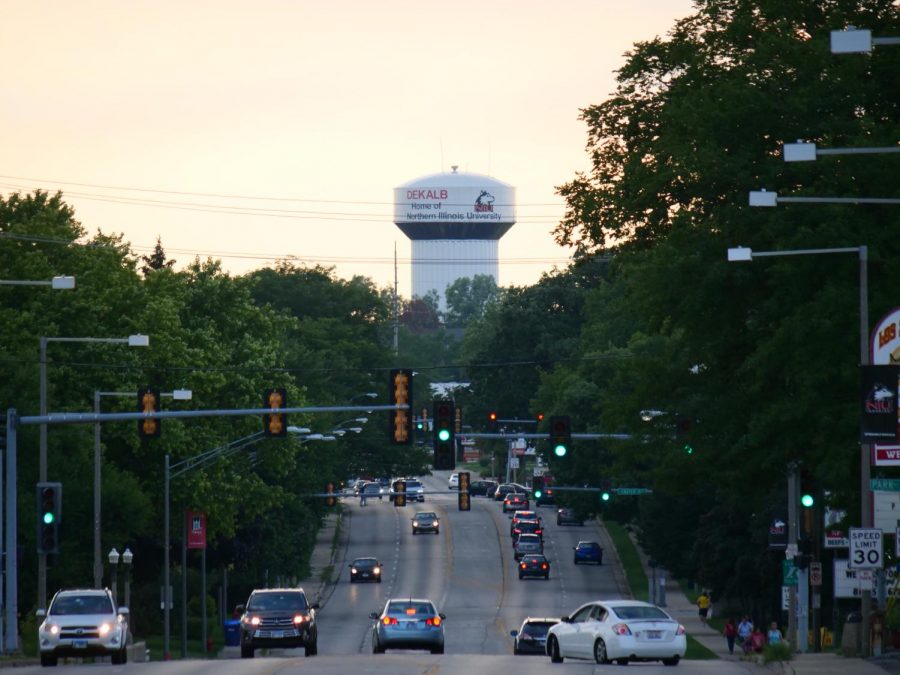DeKalb population drops by 3,572 people
September 5, 2021
DeKALB – The City of DeKalb’s population has dropped 3,572 people, according to data from the 2020 Census. In 2010, the national census reported that DeKalb had 43,862 residents, and in 2020 the census reported that the population dropped to 40,290 people.
“It was estimated that (the City government) received about $1,535 per resident,” said Sherrie Taylor, senior researcher for the Center for Governmental Studies. The loss of population also means “just over one year that’s a loss of almost $5.5 million” in federal funding every year until the next census in 2030, Taylor said.
This would mean less funding available for all aspects of city life, from the public library to the roads, as the budget would need to be rebalanced to deal with the loss of $5.5 million. Not only will this be a drop in federal funding, but with the decline in population there are fewer people paying taxes, and all local tax revenues are further hindering funding efforts.
There is evidence that there was an undercount of people who live in the City of DeKalb. The American Community Survey is a smaller survey than the census, but when done correctly it shows population trends.
The ACS has been conducted multiple times to discover information about population changes and each survey shows dramatically different results for Illinois compared to the 2020 census. One survey estimates the population losses are as great as 171,345, while another survey conducted with the same methodology finds that Illinois grew in population by 25,272. Taylor shows these differences below:

The next step for the city will be to take the implications of the census before the City Council on Sept. 13 to figure out the best way to redistrict the wards, City Manager Bill Nicklas said.
“The state and federal constitutional requirements are that the wards be roughly equivalent in terms of population, so from time to time every 10 years the council takes special attention to the wards and populations are distributed,” Nicklas said.














